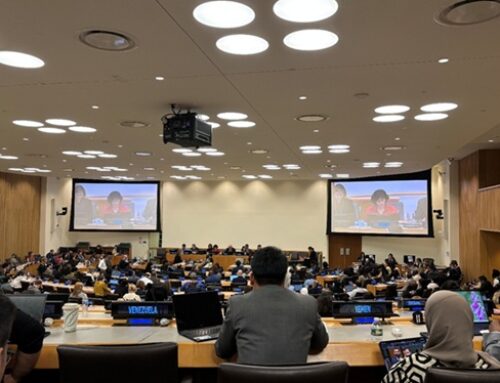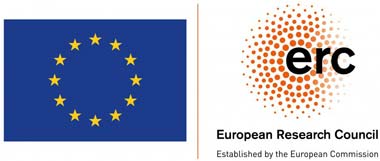Are you interested in environmental governance and working on cutting edge political science research on the future of international negotiations regarding marine ecology? Emerging digital twin technology holds promise in future solutions on governance and the mitigation of urgent environmental challenges. The central objective of TwinPolitics is to investigate the development of digital twins as a (geo)political phenomenon that could permanently transform the interface between science and politics. We are now hiring!
At the Faculty of Social Sciences (Department of Political Science) of the University of Vienna
1 student assistant position
within the ERC Project TwinPolitics
is vacant.
Overview
The successful candidate will work in an interdisciplinary research team in the ERC project “Unlocking the Full Potential of Digital Twins for Sustainable Ocean Futures (TwinPolitics)” led by Prof. Dr. Alice Vadrot, the Principal Investigator (PI) of the project. The project is embedded in the Environmental Politics Research Group at the Department of Political Science of the University of Vienna and is composed of the PI, a senior scientist, a research coordinator, 4 PhD students, 2 post-doctoral researchers, a student assistant, a communication officer and 2 project employees.
Desirable starting date: June 2025
Extent and duration of employment: Up to 20 hours week. Initially 6 months, possibility to extend.
Salary: Job grading according to collective agreement: §48 VwGr. C
Role of the successful Candidate
- Supporting research team in data collection activities
- Conduct specific desk research
- Assisting researchers in the storage of data
- Transcription of interviews
- Assisting in literature searches
Your profile
- Bachelor or Master Student at University of Vienna in the field of Social Sciences
- Very good computer skills (Microsoft package tools)
- Willingness to work in an international and interdisciplinary team
- Ability to work flexible hours in times of intensive data collection
- Interest in international negotiations, multilateral environmental agreements, ocean governance, ocean politics, science diplomacy or science-policy interrelations
- Interest in mixed methods approaches and empirical social science research
- Excellent knowledge of English
- Independent, conscientious and reliable working style
Additional advantages:
- Interest in writing your master thesis as part of TwinPolitics
- Knowledge of German, Spanish or French
Application
Applications should be addressed to Prof. Dr. Alice Vadrot and sent to twinpolitics.erc.powi@univie.ac.at by April 18th, 2025 and include in one PDF document in English Language:
- Cover Letter
- Curriculum vitae
Selection & Next Steps
Following the closing date, we will contact you by email to let you know whether you have been shortlisted to participate in the next stage of the selection process. Interviews will be held on the 6th of May 2025.
For inquiries about the application process, please contact Julia Chapotot–Necker: Julia.chapotot-necker@univie.ac.at
The University of Vienna intends to increase the number of women on its faculty, particularly in high-level positions, and therefore specifically invites applications by women. Among equally qualified applicants women will receive preferential consideration.
About the Project and the Role
The TwinPolitics Project researches the development and potential application of a Digital Twin Ocean. Digital twin technology holds significant promise in developing solutions to mitigate the damage caused by climate change and facilitating the transition to greener alternatives. The European Commission is leveraging this technology to create a digital twin of the ocean (DTO), a highly accurate digital model aimed at facilitating studies, improving decision-making, and providing essential ocean data. TwinPolitics addresses concerns surrounding the socio-technical aspects of DTOs and their use in national and international contexts and investigates current challenges related to development, access, security, legal considerations, and necessary regulations. Additionally, it will develop a methodological approach to address these challenges and ensure the effective use of DTOs.
Under Work Package 4, the project explores how digital twins shape multilateral environmental negotiations. To do so, researchers conduct systematic data collection in international negotiations such as the so-called biodiversity beyond national jurisdiction (BBNJ) Prepcom and CoP process, the negotiations for a plastics treaty, the International Seabed Authoriy (ISA) and Convention on Biological Diversity (CBD). We are seeking for a motivated student assistant to support this data collection which consists of taking notes in international negotiations following a defined note-taking methodology which has been used under the MARIPOLDATA Project to produce the MARIPOLDATAbase, presented in this publication. The successful candidate will be expected to support the research team by independently conducting data collection, helping other researchers in their data collection, transcribing negotiation sessions and interviews, conducting desk research and preparing summaries, literature reviews and presentations. Flexible working hours are required as the tasks require to work overtime some weeks and in non-European time zones at times.
We offer a position in a vibrant, dynamic, high-performance and growing interdisciplinary research group. The successful candidate also has the possibility to use the facilities, data and network of the EPRG for conducting an own Master Thesis.
You can find the job posting as a PDF here: Vacancy Master Student Twin Politics







